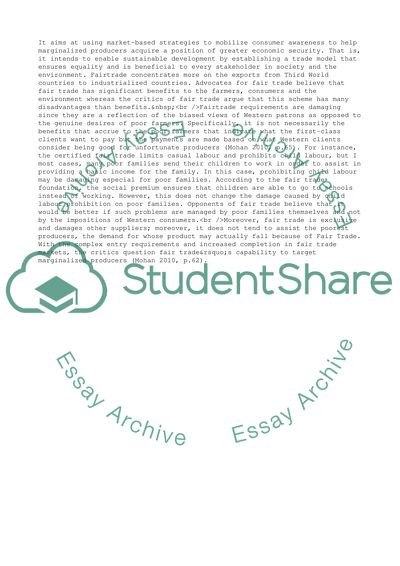Cite this document
(Fair Trade Provides No Significant Benefits Article, n.d.)
Fair Trade Provides No Significant Benefits Article. https://studentshare.org/business/1858424-fair-trade-provides-no-significant-benefits-to-what-extent-do-you-agree
Fair Trade Provides No Significant Benefits Article. https://studentshare.org/business/1858424-fair-trade-provides-no-significant-benefits-to-what-extent-do-you-agree
(Fair Trade Provides No Significant Benefits Article)
Fair Trade Provides No Significant Benefits Article. https://studentshare.org/business/1858424-fair-trade-provides-no-significant-benefits-to-what-extent-do-you-agree.
Fair Trade Provides No Significant Benefits Article. https://studentshare.org/business/1858424-fair-trade-provides-no-significant-benefits-to-what-extent-do-you-agree.
“Fair Trade Provides No Significant Benefits Article”. https://studentshare.org/business/1858424-fair-trade-provides-no-significant-benefits-to-what-extent-do-you-agree.


